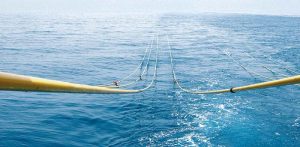Lebanese parliament spokesman Nabih Berri said that Israel’s proposed law on the energy-rich disputed waters could trigger a war, like reported by globes.co.il
The speaker of the Lebanese parliament Nabih Berri claims that the maritime zone law that Israel is formulating, and includes declaring some 860 square kilometers of disputed waters as Israeli territory, could trigger a war between the countries, reports the Lebanese newspaper “Al Joumhouria.”
Berri said, “This is a new assault by Israel on Lebanese sovereignty. What has been revealed by Israeli media was not arbitrary, but rather reveals a path taken by Israel in a bid to control Lebanon’s gas and oil wealth within Lebanese economic borders.”
“Anyway, if the Israeli disposition is correct, which I tend to believe, it is tantamount to a war sparked by Israel. It is another maritime Shebaa Farms Conflict which opens the situation to many dangerous possibilities.”
In January, the Lebanese government decided to issue tenders for gas and oil exploration licenses for five offshore blocks, three of which are in areas overlapping waters disputed with Israel. At the same time, steps have been taken in Israel to formulate the maritime zone law, which was suspended in 2014 from concern that it would require Israel to sign the international maritime convention, which would bring the matter to an international tribunal where Israel would have no control.
Lebanon believes that its economic waters contain 850 million barrels of oil and no less than 2,700 BCM of natural gas, similar to Israel’s potential, including the fields that have already been discovered. A tender process it began in 2013 but never came to fruition attracted 52 oil and gas companies.
Commenting on this issue at the Cerweek Conference in Houston, Minister of National Infrastructures, Energy and Water Resources Yuval Steinitz said, “In early February, we sent an official letter to the UN expressing our protest about the actions by Lebanon, which published a tender for its marine economic waters that extended into the edge of Israel’s economic waters. Israel will maintain its rights, but is open to a dialogue in this context.”
Israel has also asked the US and the UN to pressure Lebanon to change the oil and gas exploration tenders being planned by the latter in five maritime blocks.
Former Foreign Ministry diplomat Eran Etzion, who headed the diplomatic planning division from 2008-2013 and who was involved in the Israel-Lebanon maritime border, said, “This topic is complicated and sensitive. It contains diplomatic, security, legal and of course energy issues. With the current tensions between Israel and Syria and Iran and Hezbollah being empowered, special caution is required in handling the matter. In the past, Israel was correct to act in coor4dination with the US and even initiated quiet diplomacy that brought results, albeit limited. In the Trump era, and with Russia playing a more significant role than in the past, a new diplomatic and energy opportunity has opened up for Israel. Let us hope the government will know how to take advantage of it.”



